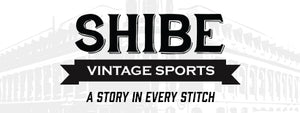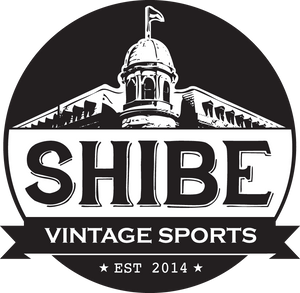April 15, 2020
 In 2002, I hosted a short lived sports radio show that I suspect had somewhere between 10 and 15 listeners per episode. Nonetheless, on one of the episodes, we were lucky enough to do a phone interview with Stanley "Doc" Glenn, former catcher for the Philadelphia Stars, the city's longest running and best known Negro League team. My cohost on the show was smart enough to record the episodes, and Thank God he got this one on tape. It was so good. Doc Glenn was beloved in Philadelphia baseball circles for his grace, thoughtfulness and his warmth, qualities that all were on display as he talked to us about what it was like to catch Satchel Paige, how the Negro League players felt when Jackie Robinson got the call to the Majors, and who the greatest player was that he ever saw play the game. I stumbled across this tape a few years ago and had been meaning to transcribe it ever since. This year on Jackie Robinson Day seemed like the right time to do so. It was the first time I had heard from Doc since that day in 2002, and I hope that this time a few more people get to hear the knowledge and insight of one of Philly's finest baseball players and one of its finest men. -Johnny
In 2002, I hosted a short lived sports radio show that I suspect had somewhere between 10 and 15 listeners per episode. Nonetheless, on one of the episodes, we were lucky enough to do a phone interview with Stanley "Doc" Glenn, former catcher for the Philadelphia Stars, the city's longest running and best known Negro League team. My cohost on the show was smart enough to record the episodes, and Thank God he got this one on tape. It was so good. Doc Glenn was beloved in Philadelphia baseball circles for his grace, thoughtfulness and his warmth, qualities that all were on display as he talked to us about what it was like to catch Satchel Paige, how the Negro League players felt when Jackie Robinson got the call to the Majors, and who the greatest player was that he ever saw play the game. I stumbled across this tape a few years ago and had been meaning to transcribe it ever since. This year on Jackie Robinson Day seemed like the right time to do so. It was the first time I had heard from Doc since that day in 2002, and I hope that this time a few more people get to hear the knowledge and insight of one of Philly's finest baseball players and one of its finest men. -Johnny
Johnny: You played with the Stars from 1944-1950, correct?
Doc Glenn: That is correct.
Johnny: Where did you play in Philadelphia? Where was the stadium?
Doc Glenn: 44th and Parkside.
Johnny: And what was an average crowd for you guys around then?
Doc: Well four or five thousand there you could get in. But every Monday night, when the Philadelphia Athletics and the Philadelphia Phillies were here, they would rent the ballpark to us, beginning in the year 1943. And we would play a twilight/night doubleheader there on a Monday night and draw 30,000 people.
Johnny: And you’re talking about Shibe?
Doc: Shibe Park.
Johnny: 30,000 on a Monday night?
Doc: And the Phillies or A’s could get around 10, maybe 12 thousand for a doubleheader on Sunday.
Johnny: Did you ever see Josh Gibson play?
Doc: Played against him. I was 17 years old and got run over by him in Griffith Stadium, Washington, DC. Almost killed me.
Johnny: You hear the legends of Josh Gibson. You talk about the Negro Leagues, you’re talking about probably Josh Gibson and Satchel Paige as the two biggest names. There are comparisons made between Josh Gibson and Babe Ruth. Was he that unbelievable?
Doc: He was the best right handed hitter I ever saw. Now I saw Foxx and Cronin and those guys. Nobody right handed could hit like Josh. In a full season, he might have swung at 10 or 12 balls and completely missed the ball. Usually when he swung the bat he hit the ball hard someplace. He was awesome.
Johnny: Was he the best player you ever saw?
Doc: No.
Johnny: Who was the best player you ever saw?
Doc: Best player I ever saw was Willie Mays. He came up with the Birmingham Black Barons in 1948. And he was about 16 years then. And he had better instincts than any ballplayer I ever saw. Even at that young age.
Johnny: One of the great baseball arguments is Mays vs Mantle. You think Mays has that one wrapped up?
Doc: Yep, no question.
Johnny: You used to catch for Satchel Paige. Is that correct?
Doc: Yep.
Johnny: A couple of interesting legends about Paige. He supposedly pulled outfielders to sit beside the mound while he proceeded to strike out the side.
Doc: Well I believe it, but that was before my time.
Johnny: But you do believe it?
Doc: Oh yeah, I’ve heard too many people say it. I believe it.
Johnny: And intentionally walk the bases full so he could pitch to Josh Gibson.
Doc: Mmmm-hmmm. I tell ya, well first Satchel didn’t remember anybody. Al Zarilla hit two home runs off of him in an All Star game in 1946. The next time he came up to bat, I walked out to the mound and said “Hey man, do you know who’s at the bat?” And he said, “No, who is he?” He never remembered anything.
Johnny: Another legend was that occasionally the ball would disappear on the way home. Did that ever happen? Did you ever lose sight of the ball because it was going so fast?
Doc: No, no, no. No. He could throw hard. But Satchel’s ball was very light. We had a pitcher named Henry Miller who could probably throw just as hard as Satchel, but his ball was heavy. If you caught Miller for nine innings, your wrist would be sore.
Johnny: What’s the difference? If they’re both throwing the same speed, what’s the difference between a guy throwing heavy and a guy throwing light?
Doc: Satchel’s ball, the way it was spinning, was just very light when you caught it. Miller’s ball would spin different. And it was like a brick. When it hit the glove: Boom! Satchel wasn’t like that, his ball was very very light.
Johnny: Seeing the game today, who would you like to catch for now?
Doc: Anybody. Anybody.
Johnny: Watching baseball all of these years, who is the greatest catcher you’ve ever seen?
Doc: I guess the greatest catcher I ever saw was Biz Mackey. Mackey taught Campanella how to catch. Don’t forget that.
Johnny: There’s some controversy there that Mackey is probably the person most deserving of getting into the Hall of Fame who isn’t there now.
Doc: Well I think that’s right. (*Note: Mackey would be inducted in 2006)
Johnny: Getting back to Satchel, how many pitches did Satchel Paige have? Did he throw all heat or did he have a good repertoire?
Doc: His main pitch was the fastball, and when Satchel threw you a curveball he did you a favor. And then he had the hesitation pitch they wouldn’t let him use in the Major Leagues, I don’t know why.
Johnny: What was the hesitation pitch?
Doc: The hesitation pitch was that when he’d wind up, his front leg would come down first, and then the ball would come.
Johnny: You were still playing in the Negro Leagues when Jackie Robinson went to the Major Leagues. What was the prevailing feeling in the Negro Leagues? Were you guys excited because there was an African American being admitted into the Major Leagues or were there mixed feelings because you knew if it worked out that there probably wouldn’t be any Negro Leagues?
Doc: We knew that, of course. But you have to remember: one door closes, and 75 doors open. And that’s how I personally looked at it. We were happy for Jackie, of course. We were a little bit apprehensive because Jack had only played one year in the Negro Leagues which was 1945. And by far he wasn’t the best Negro League player. But he was the best man for the job. He was educated. He had the heart of a lion. And (Branch) Rickey picked the right man. I would not have been able to do it. Because sooner or later I would have flattened somebody. And that would have been the wrong thing.
Johnny: Today I think we see less interest in baseball among African Americans. You talk about how 30,000 used to come out for the games, and now you don’t see that much interest in the African American community. Why do you think that is?
Doc: Well, especially here in Philadelphia, we were probably the last to get a black ballplayer here. And other than Richie Allen, he was the only black star they’ve had here (note: the interview was done during J-Roll’s second season and before Ryan Howard had been called up).
Johnny: And from what I understand he wasn’t treated that well while he was here.
Doc: No he wasn’t. And I know Dick very well, we go on memorabilia shows together. And he had a rough time here. But the word is out that most stars just simply don’t want to play here. Philadelphia is a tough town.
Johnny: Were the fans tough back then?
Doc: Oh yes. All of my schooling except for first grade was done here in Philadelphia. All of my formidable years were here. And the town was tough, even back then.
Doc would live until 2011, representing the Stars and the Negro Leagues throughout his remaining years at numerous functions with grace, class, and humor. Today we honor Jackie Robinson, a great American hero. But it’s important that we also remember the people like Doc Glenn, men who not only paved the way for Robinson, but who ensured that the memory and the legends of the Negro Leagues would be kept alive. -Johnny

